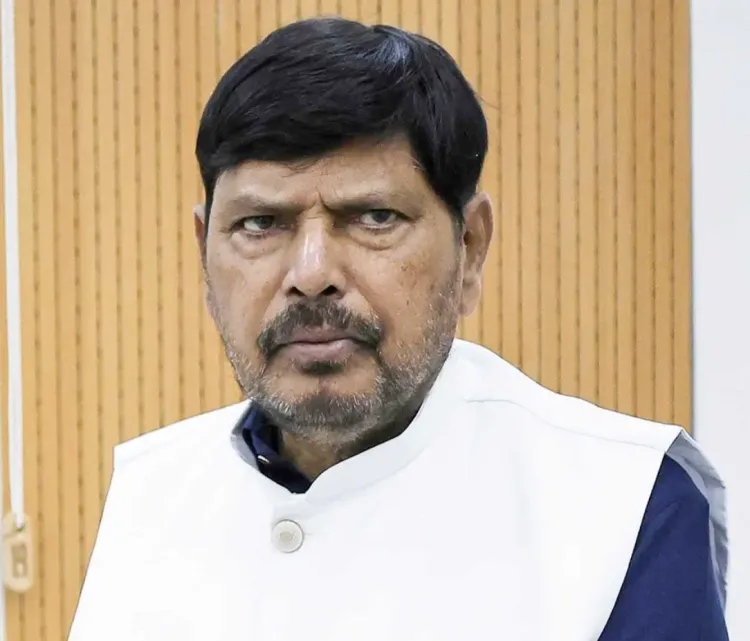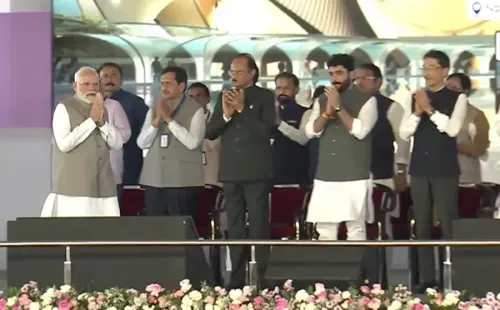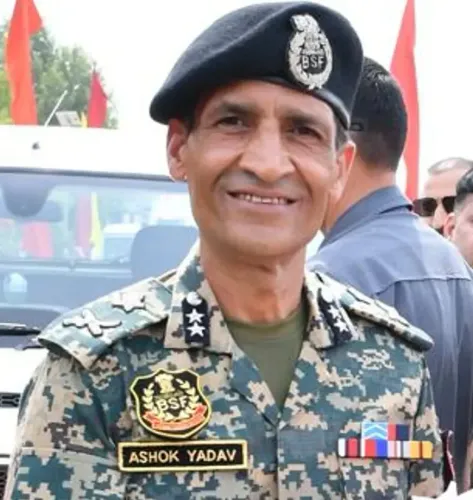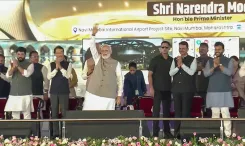Why is Ramdas Athawale Criticizing Raj & Uddhav Thackeray Over Hindi?

Synopsis
Key Takeaways
- Hindi is endorsed as a national language.
- Opposition to Hindi is viewed as unconstitutional.
- Regional leaders are urged to recognize Hindi's significance.
- Political protests reflect ongoing tensions in Maharashtra.
- Unity among diverse languages is crucial for national integrity.
New Delhi, June 26 (NationPress) Union Minister Ramdas Athawale has strongly advocated for Hindi as the national language, taking a jab at Maharashtra's leaders Raj Thackeray and Uddhav Thackeray for their politicization of the language debate.
In an interview with IANS in Mumbai, Athawale labeled the resistance to Hindi as “unconstitutional” and urged the Maharashtra government to withstand political pressures.
Commenting on MNS chief Raj Thackeray’s call for a major protest on June 6 against the imposition of Hindi in schools, Athawale said, “Raj Thackeray is a political party leader and has the right to protest in a democracy. However, Hindi is our national language. Opposing Hindi equates to opposing the Constitution. We honor Marathi, but teaching Hindi in one or two subjects will not harm anyone.”
In response to Shiv Sena (UBT) chief Uddhav Thackeray's announcement of a protest on July 7, accusing the BJP of using language policy as a propaganda tool, Athawale dismissed the allegations.
“There is no BJP propaganda. This is the agenda of the Constitution. Every state honors its language—be it Tamil, Odia, or Bengali. However, Hindi serves as a common language across various states. Uddhav and Raj should not oppose it,” he stated.
Athawale also supported Defence Minister Rajnath Singh for not signing the SCO summit declaration due to the omission of critical references to terrorism. “Rajnath Singh is a prominent leader. The events in Pahalgam and Pakistan’s involvement should have been included in the document. He made the right choice by refusing to sign,” he remarked.
On Congress MP Shashi Tharoor praising PM Modi, despite criticism from party president Mallikarjun Kharge, Athawale commented, “In matters of national security, everyone should unite behind the PM. Tharoor is a senior figure and rightly acknowledged Operation Sindoor. However, Rahul Gandhi and Kharge's opposition stems from their dislike for PM Modi.”
Addressing Rahul Gandhi's accusations of unfair elections in Maharashtra, Athawale countered, “There was no rigging. The rise in voter turnout was a natural occurrence. Rahul Gandhi is spreading unfounded lies.”









